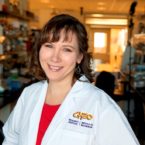We examined the utility of clinical and research processes in the reanalysis of publicly-funded clinical exome sequencing data in Ontario, Canada. In partnership with eight sites, we recruited 287 families with suspected rare genetic diseases tested between 2014 and 2020. Data from seven laboratories was reanalyzed with the referring clinicians. Reanalysis of clinically relevant genes identified diagnoses in 4% (13/287); four were missed by clinical testing. Translational research methods, including analysis of novel candidate genes, identified candidates in 21% (61/287). Of these, 24 families have additional evidence through data sharing to support likely diagnoses (8% of cohort). This study indicates few diagnoses are missed by clinical laboratories, the incremental gain from reanalysis of clinically-relevant genes is modest, and the highest yield comes from validation of novel disease-gene associations. Future implementation of translational research methods, including continued reporting of compelling genes of uncertain significance by clinical laboratories, should be considered to maximize diagnoses.
Researchers
-
Talia Hartley
Investigator, CHEO Research Institute
-
Kym M Boycott
Senior Scientist, CHEO Research Institute
-
David A. Dyment
Investigator, CHEO Research Institute



